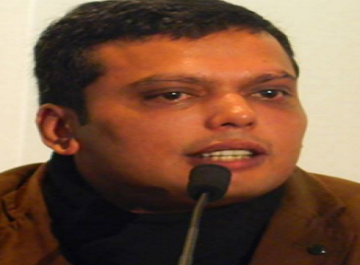'Every Individual has a right to live'
February 26, 2015 | Thursday | News | By BioSpectrum Bureau
'Every Individual has a right to live'
Mr Premroop Alva was diagnosed with hemophilia at a very young age
There are an estimated 6,000-7,000 rare diseases which have been identified, of which for only 500 diseases treatment is currently available. As per WHO estimates, India has 70 million rare disease patients. Still, no significant research is happening in this area.
"Given the huge burden of rare diseases we have in India, there is an urgent need to invest in clinical research that ensures that patients have access to new drugs and treatment which research makes possible," said Dr Vikas Sharma, member, Ethics Council, Indian Society for Clinical Research (ISCR). He was speaking at an event organized by ISCR on the occasion of World Rare Disease Day, which falls on February 28.
Due to the lack of awareness even among the medical fraternity, rare diseases generally take a long time to diagnose. Lack of availability of treatment and high costs (for available ones) poses another challenge.
"Awareness, accessbiliy and affordability are the key needs of patients suffering from a rare disease and an early diagnosis is a critical challenge in the management of rare disease," said Dr Prasanna Shirol, founder, Organisation for Rare Diseases India (ORDI), and whose daughter has a rare disease called Pompe.
Stressing the need for clinical research in rare diseases, Dr Suneela Thatte, president, ISCR said, "India has 17 percent of the world's population, 20 percent of the highest disease and yet less than 1.5 percent of the global trials take place in India. The number of trials in rare diseases as a percent of these is probably an even more insignificant number."
Atleast if there is an clinical research happening that would provide a ray of hope for the patients and their families who generally lives in dark and have no idea about what to do, where to go. And also at times, it has been helpful in improving the condition of these patients. One such example is Mr Ram G Vallath, an entrepreneur, motivational speaker and author. He suffers from an auto-immune disorder CIPD, a rare disease.
"I was fortunate to be able to participate in a stem cell clinical trial in the USA thanks to which my condition has improved significantly. Unfortunately, a majority of patients in India cannot afford the current line of treatment nor is there any access to clinical trails for CIDP in India. The life of these patients is therefore, one constant struggle and suffering," said Mr Vallanth.
Another such example is of Mr Premroop Alva who was diagnosed with hemophilia at a very young age. He participated in a hemophilia clinical trial for a new treatment which offered a significant benefit over the existing line of treatment and the new drug is expected to be launched in India soon.
"The chances of dying with influenza, was very high 100 years back but then research provided the solution. Research is important to reduce human suffering, we have to give the same amount of importance to every human disease. We need to provide an environment where it is easy to do innovation and research. If we have an environment which is conducive of scientific, ethical and relevant research, rare disease would also get benefitted," said Dr Vikas.
"Today, the cost of treatment is high because the innovation took place in some other country. If we could invest in research in our own country, we can develop the treatment cheaply," he added. He also stressed on the needs of having an orphan drug policy for these diseases which will foster research in this area.
Dr Prasanna further supported, "We need to create a strong system for rare diseases in India including a patient registry, a supportive national policy and regulatory environment. Patients suffering from rare diseases have an equal right to benefit from new medicines and treatment available to patients in other parts of the world."
"It is not about the statistics, because every individual has a right to live and every human being is important," he added. Thus, there is a need for greater amount of research for these rare diseases because ultimately it will help in reducing the disease burden of the country.









